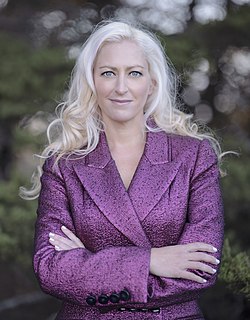A Quote by Alain de Botton
Most of the time, we make discoveries about how difficult people are at the moment when the difficulties have actually hurt us; therefore, we are not likely to be forgiving or sympathetic.
Related Quotes
What is forgiving? Forgiving is giving up all claim on one who had hurt you and letting go of the emotional consequences of the hurt. How can we do that? It's done at the price of beating back our pride. By nature we are selfish. Forgiving, by definition, is unselfish. Being hurt by another person wounds our pride. Pride stands in the way of forgiving. We cannot forgive without God's help. It might be possible for us to forgive something inconsequential without God's help; but in significant matters, we are unlikely to accomplish anything without God's involvement in the process.
Physics has entered a remarkable era. Ideas that were once the realm of science fiction are now entering our theoretical ? and maybe even experimental ? grasp. Brand-new theoretical discoveries about extra dimensions have irreversibly changed how particle physicists, astrophysicists, and cosmologists now think about the world. The sheer number and pace of discoveries tells us that we've most likely only scratched the surface of the wondrous possibilities that lie in store. Ideas have taken on a life of their own.
Most of our difficulties, our hopes, and our worries are empty fantasies. Nothing has ever existed except this moment. That's all there is. That's all we are. Yet most human beings spend 50 to 90 percent or more of their time in their imagination, living in fantasy. We think about what has happened to us, what might have happened, how we feel about it, how we should be different, how others should be different, how it's all a shame, and on and on; it's all fantasy, all imagination. Memory is imagination. Every memory that we stick to devastates our life.
People sometimes focus on the red button hot topic issues and I'm, like, you know, who cares about priestly celibacy? I'm thinking about how am I forgiving my enemies? How am I turning the other cheek? How am I loving my neighbor as myself? To me that's 10,000 times more difficult than to say should priests be married or not be married? I'm, like, I think we're wasting all out energies on the wrong thing. Let's work on the most difficult stuff.
...It would be possible to make much more progress than has been made if the NCI knew its job better, knew how to make discoveries...The NCI really does not know how to make discoveries....So long as the NCI is not willing to follow up ideas that seem good to people who have had experience making discoveries, the work of the NCI is going to be pedestrian.
People who expect to feel guilty tend to be more sympathetic, to put themselves into other people's shoes, to think about the consequences of their behaviour before acting, and to treasure their morals. As a result they are less prone to lie, cheat or behave immorally when they conduct a business deal or spot an opportunity to make money, studies suggest. They are also likely to make better employees because people who think less about the future results of their actions are more likely to be late, to steal or to be rude to clients.
You either hear the story and you're curious, and you're sort of sympathetic, or you think, "Ugh, how horrible." That's dehumanizing. How about we take that and turn Christine Chubbuck into a person and it's not about the final act, it's about her life. I felt that really strongly, and I felt a sort of deep sympathy with her. It's also why I do what I do. I want to try to make difficult people somehow relatable.
To live means to experience-through doing, feeling, thinking. Experience takes place in time, so time is the ultimate scarce resource we have. Over the years, the content of experience will determine the quality of life. Therefore one of the most essential decisions any of us can make is about how one's time is allocated or invested.
The problem with an autobiography is that all these extra factors make it difficult. You don't want to hurt people's feelings. You don't know how much you can trust your memory. You don't want it to be self-serving. And you have all these issues about how to present yourself. All these factors make it harder to do than a novel.
Forgiving is love's toughest work, and love's biggest risk. If you twist it into something it was never meant to be, it can make you a doormat or an insufferable manipulator. Forgiving seems almost unnatural. Our sense of fairness tells us people should pay for the wrong they do. But forgiving is love's power to break nature's rule.





































